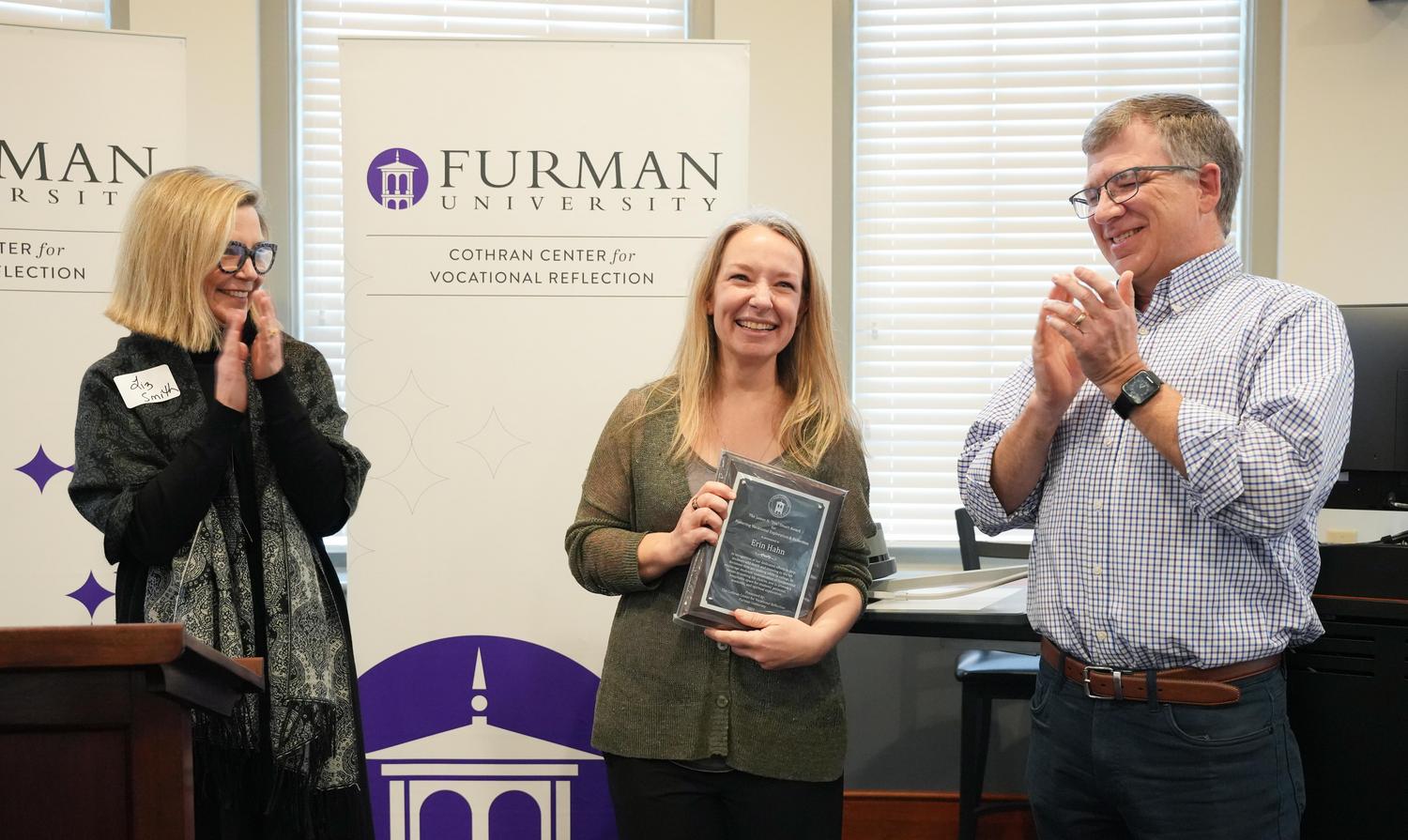Program Overview
Table of Contents
WHAT IS A HISTORY DEGREE?
We’ve all heard the phrase in some form before. How does the past inform our present and our future? And how do contemporary issues change how we view the past? We study history to make sense of the present and help ensure a better future. A history degree prepares students for lives of purpose through the study of people, places and civilizations around the world and across the ages.
Why study history at Furman?
With 13 faculty members, the Furman history department delivers extraordinary coverage of world history. In classes that are small by design, sharpen your historical context skills while synthesizing information to build and deliver a persuasive argument. The department also offers special two credit-hour courses based on contemporary topics of the day – including epidemics, high-seas pirates, regimes and dictators. Plan a visit to Furman’s beautiful campus or start your application today.
How will you learn?
Work one-on-one with professors through research fellowships in history. Study away in Belgium, the British Isles, Latin America, Japan, China, Africa, India and other regions. Be one of 16 students (in any major) annually to earn a paid internship in East and Southeast Asia. Or use your internship to apply your historical evidence-collection expertise in a firm’s research or data analytics office.


Careers for history majors
History majors are well prepared for the workforce with finely tuned critical thinking, analysis and communication skills. Hiring managers look for strong communicators who understand nuance and pick up important details – hallmarks of a history major.


Some sample fields and vocations are:
- Lawyer
- Public relations and marketing professional
- Postgraduate education in theology, business, law
- Researcher, data analytics expert
- Investment banker or financial analyst
- Media and entertainment professional
- Local, state and federal government posts
- Nonprofit manager dealing with social and environmental justice causes
Featured history courses
-
97%History majors who participate in any engaged learning experience
-
56%History students who study away
-
20%History majors who collaborate with faculty or conduct independent research
What our students say
Our faculty


John Barrington


Erik Ching


Carolyn Day


Timothy Fehler


Jason Hansen


Lane Harris


Nadia Kanagawa


Tuğçe Kayaal


Savita Nair


Stephen O'Neill '84


Holly Pinheiro, Jr.


Marian Strobel


Courtney Tollison '99


History Major F.A.Q.
Hiring managers look for professionals who can communicate effectively, understand finer nuances and gather key points – all areas in which history majors excel. Graduates find jobs in fields such as law, public relations and marketing, research, postgraduate studies and government. Some history majors become lawyers or other legal professionals, public relations and marketing practitioners, scholars and government officials.
On average, those with a history degree earn $55,000 per year, according to bestcolleges.com. But the salaries vary depending on the field; managerial positions may earn $80,000 per year, while law positions may earn $100,000, or more.
The history B.A. at Furman is a four-year program.






